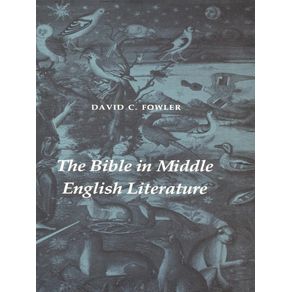In this companion to his previous book, The Bible in Early English Literature, David Fowler completes his stimulating and broad-ranging study of medieval English literature in the light of biblical tradition. As in the first volume, he both provides a broad general view of literary trends and closely examines representative works that illustrate these trends.The author begins by discussing medieval drama in England--with special attention to the Cornish drama-- as revealed in the cycle plays that enacted the entire history of the world from Creation to Doomsday. He demonstrates how the drama grew out of the liturgy of the Church and developed into a parallel fashion with other kinds of vernacular literature in the later Middle Ages, and he offers a possible explanation of the origin of the morality play in England.This is followed by an examination of representative shorter medieval lyrics. Fowler shows that many of these lyrics were composed to memorialize particular secular and religious elements blended subtly and distinctively in Middle English lyrics, often with a complete harmony of sacred and sexual significance. A special section deals with Mary Magdalene in popular tradition, comparing her description in the Bible with her treatment in legend, drama, lyric poetry, and the ballad.The final three chapters focus on particular literary works which the author believes to be outstanding examples of poems composed in the biblical tradition. The Parliament of Fowls is selected as the best example of biblical influence in all of Chaucer. The work is seen as a Creation poem with its organizing principles derives from commentaries on the first chapter of Genesis--a new theory of the poems structure which the author feels resolves many of the difficulties previously encountered by scholars.Fowler than treats several works of the Pearl poet--Cleanness, Patience, Saint Erkenwald, and the Pearl--in their particular blend of humor, seriousness, and Christi

